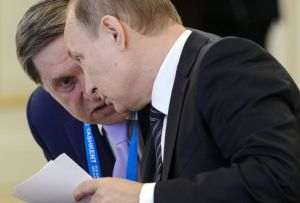A few days ago, Welt am Sonntag published a statement by Kai Konrad, economic advisor to Chancellor Merkel, by which he expressed his doubt about the chances of survival of the unified currency for more than five years.
According to Konrad, the international press has also taken on the statements of the president of Bundesbank, Jens Weidmann, according to whom Europe would need about 10 years to overcome the debt crisis.
Fortunately, Europe's "rescue" from the straitjacket of the Euro may come a lot faster. A secret report of the Bundesbank, sent to the Federal Constitutional Court in December 2012, recently "leaked" in the pages of the financial daily Handelsblatt.
In this report, the "Bundesbank launched punctual attacks against every statement made by Mario Draghi to justify the program of Direct Monetary Transactions", Ambrose Evans-Pritchard wrote in The Telegraph. The authenticity of the report was confirmed by the Bundesbank, according o a piece of news by Reuters.
Upon the announcement of the DMT program, Draghi justified the buying of the government bonds by saying that "the major interest rate differential should not be tolerated". For the Bundesbank, which is concerned that the unlimited bond buying program undermines the independence of the ECB, "a uniform level of the interest rates is not desirable", the article of Handelsblatt writes. The reason is simple: the differences between the interest rates of the various government bonds should reflect the economic performance of the country in question.
Given the fact that "risk and responsibility should not be decoupled", as recently stated by Chancellor Merkel, the Bundesbank estimates that it is this very principle that violates the European rescue plan.
The document of the Central Bank of Germany also mentions that the buying of bonds issued by troubled countries involves the risk of major losses for the ECB, if they were forced to leave the Eurozone. Such an event is no longer conceivable for the Bundesbank.
For analyst Harvinder Sian, of RBS, "the Bundesbank report borders on economic warfare", and the markets could react negatively amid the uncertainty concerning the approval of the Direct Monetary Transactions of the ECB.
Even though the disagreements between Weidmann and Draghi are nothing new, especially since the president of the Bundesbank was singled by the chairman of the ECB as the only opponent of the plant to monetize European sovereign debts, "the aggressive tone of the report shocked the economists", according to Evans-Pritchard.
As if all the criticism of the Bundesbank concerning the desperate measures proposed by Draghi wasn't enough, the document of the German Central Bank also contains the supreme "heresy": "The ECB does not have a mandate to maintain the current structure of the monetary union", as its only goal is price stability. This was also the opinion of government advisor Kai Konrad: "It is Europe that matters to me. Not the euro".
The German constitutional court will decide on the legality of the DMT plan on June 12th, 2013, about two months prior to the German general elections. The decision of the Court of September 2012, concerning the constitutionality of the European Stability Mechanism has also included an important clarification: "The acquisition of government bonds by the ECB, directed towards the financing of the national budgets, is prohibited, because it breaks the interdiction of monetizing debt", as written by The Telegraph.
"A decision of the Constitutional Court against the TMD will mean the end of the Euro", said Mats Persson, of Open Europe, for The Telegraph, and German historian Michael Stürmer sees the report of the Bundesbank as "an attempt to reaffirm its predominant role in the Eurosystem".
The report sent to the Constitutional Court of Germany by the Bundes-bank will undoubtedly generate numerous political conflicts, both domestically and on a European level, and the "friends" of the European currency will find it increasingly difficult to protect their positions.
It is not out of the question that by the end of this year, we will see a rare convergence of the European authorities: the Euro has to die for Europe to live.
"The Bundesbank is on the verge of economic warfare." (HARVINDER SIAN, RBS)
























































